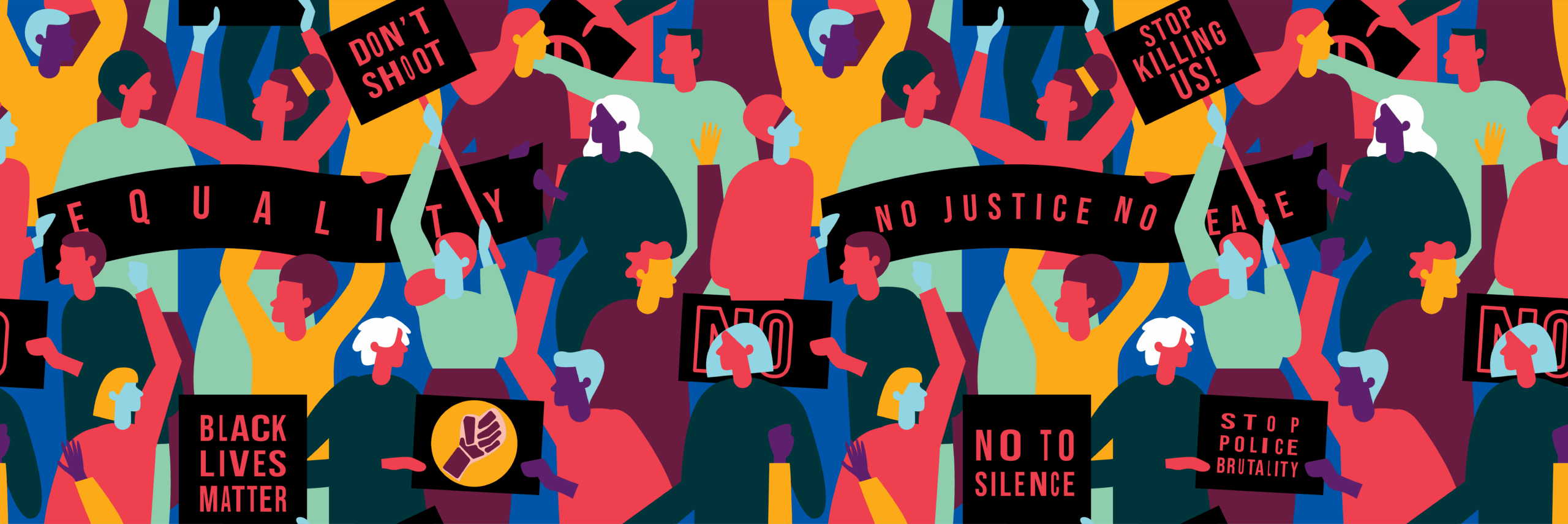
When our team jumped into a new year last January, like most of you, we had no idea the turn our world would take in just a short couple of months. We were excited at the possibility of policy advancements, litigation successes, and advocacy efforts on some of our most important issues. We were gearing up for an election year that was bound to be historic, and we were excited to share all of our wins, learning moments, and important actions with you throughout the year.
In March, a lot of those plans were sidelined, complicated, or completely discarded when our state, our country, and the entire world was turned upside down due to the global pandemic.
Suddenly, we found ourselves shifting our plans to advocate for civil liberties needs that were made apparent by the pandemic. Gaping holes in our systems that were not new, but made far worse with state and nation-wide restrictions, were putting the weight of the public health crisis on Black and Brown communities, low-income people, and people with disabilities. We knew we needed to rise up with the voices calling for urgent reform on many fronts, so that’s what we did.
This year looked different than any of us imagined. But we finish the year proud of the progress we were able to make and the people we were able to help. We’re excited for the possibilities that next year brings, and we renew our promise to you: that we’re still here, we’ve still got your back, and we stand ready to fight for the Delawareans who need us in the coming year.
Thanks for sticking with us,
The ACLU of Delaware Team
Please consider making a donation to support our commitment to doubling down on the fight for civil liberties in Delaware.
Here’s a snapshot of some of our most important work to help Delawareans through this year:
Smart Justice
In March, as COVID-19 cases started to spike in Delaware, we were one of the first state advocacy groups to sound the alarm on the need to protect those living and working in Delaware’s prisons. We sent an initial letter to the Attorney General and the Department of Correction, followed up by a letter to Governor Carney, and renewed our calls for mandated testing, proper PPE, early release where appropriate, and basic necessities for prisoners ‘ hygiene and communication with loved ones. When the most recent outbreak began to rise in Delaware’s prisons, we sent another letter to Governor Carney and Commissioner DeMatteis asking them again to take important measures to reduce the risk of incarcerated people and DOC staff, then we followed it up with another action campaign to increase the impact of our ask.
Throughout the year we also asked the Delaware Courts to halt the collection of fines and fees through the State of Emergency, monitored protests in Delaware while police reform demonstrations were happening, and threw our resources into making sure that police reform becomes a local and state legislative priority in 2021.
Freedom of Speech
In June, while police reform demonstrations continued in Delaware and nationwide, we protected the freedom of speech in Dover when the mayor attempted to extend an unnecessary curfew that would impede on demonstrator’s and citizens’ rights.
Voting Rights
Elections looked different in a lot of ways this year, but no matter what happened we stayed committed to ensuring Delawareans received fair, free, and secure elections. In June, we advocated for a permanent vote by mail solution, and a temporary vote by mail bill was passed later that month. In September, we filed a lawsuit against the Department of Elections to extend the ballot return deadline to make voting by mail more accessible to all eligible voters. For the Presidential Primary and General Elections, we educated voters on what to expect, important election updates, and how to prepare for an election that would take longer than usual to count.
We also teamed up with the Votamos / We Vote Coalition to reach over 10,000 Latinx voters to ensure that they received all this important information, too.
Disability Rights
In early September, we teamed up with the Community Legal Aid Society, Inc. (CLASI) to send a letter to Governor John Carney asking for immediate action on our recommendations to protect people with disabilities from COVID-19 infection.
Housing Rights and the Rights of People Experiencing Homelessness
In January, before the pandemic hit, we were able to uphold Wimington citizens’ right to panhandle when the majority of Wilmington City Council approved an ordinance to remove portions of the city code that criminalized panhandling in ways that were violations of the First Amendment. This decision came after we worked with the teams at Paul, Weiss, Rifkind, Wharton & Garrison LLP and the National Law Center on Homelessness & Poverty (NLCHP) to send a letter to the city council in support of the code change.
After the pandemic hit we joined community organizations like the Building People Power Campaign, Coalition to Dismantle the New Jim Crow, Delaware Center for Justice, H.O.M.E.S. Campaign, Southern Delaware Alliance for Racial Justice, and YWCA Delaware to call on Governor Carney to prevent mass evictions through and past the state of emergency.
Immigrants’ Rights
In May, we signed on to a letter to Governor Carney with Network Delaware’s Safe Communities campaign and other community stakeholders that called for an expansion of the state’s COVID-19 relief efforts to include Delaware’s immigrant community. We urged Governor Carney to take important steps to ensure their safety, such as creating a disaster relief fund specifically for immigrants and strongly enforcing safety regulations in workplaces with high immigrant populations.
Education Equity
2020 has been a big year for education equity. We’ve had two huge breakthroughs in our Delaware public schools litigation: a victory on the county track and an historic settlement on the state track. There will be more progress made on both of those tracks in 2021.
In June, we advocated for counselors, not cops, in the Red Clay school district so schools can help students learn with support rather than discipline and criminalization. In October, we asked Governor Carney to mandate COVID-19 testing in schools to help keep students and staff safe and keep in-person learning accessible.
Throughout the year, we worked with different schools to conduct fair discipline trainings for parents, teachers, and school administrators that focused on restorative practices, lifting up families’ voices and learning how to hear and respond to what the students need to receive an equitable education.



